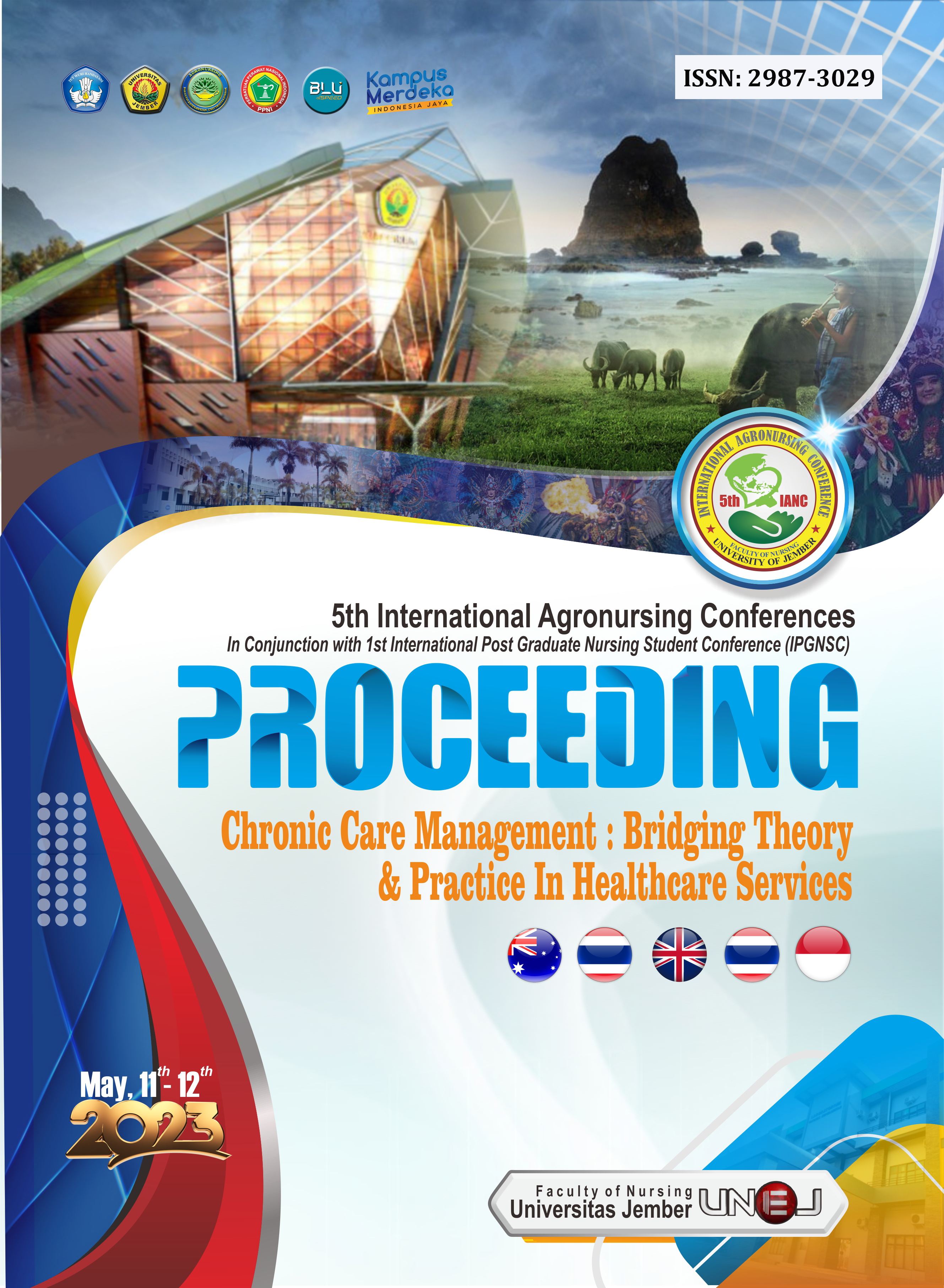THE NURSE'S ROLE AS AN EDUCATOR AND DIETARY ADHERENCE IN TYPE 2 DIABETES MELLITUS PATIENTS
Abstract
Background: Diabetes Mellitus (DM) requires long-term treatment to prevent further complications. Dietary adherence is useful for reducing the increase in blood sugar levels. However, many patients still do not adhere to the diet for various reasons, including a lack of knowledge. Nurses can provide information by carrying out their role as educators to increase patient knowledge. This study analyzed the correlation between the nurse's role as an educator and dietary adherence in type 2 DM patients. Methods: This study used an analytical observational design with a cross-sectional approach. A total of 112 respondents were selected using a consecutive sampling technique. Data were collected using the nurse's role as an educator and diet adherence questionnaires and were analyzed by the Spearman rank correlation test with a significance level of 0.05. Results: The median score of the nurse's role as an educator was 63 (min-max= 40-90), and the median value of dietary adherence was 26.5 (minmax= 18-40). The Spearman Correlation test showed a significant positive correlation between the nurse's role as an educator and dietary adherence (p-value: 0.032; r: 0.203). The better the nurse's role as an educator, the higher the patient's dietary adherence. Conclusions: This study implies the importance of the nurse's role as an educator to provide appropriate health education to encourage diet compliance in type 2 DM patients.


